
Find Help
More Items From Ergsy search
-
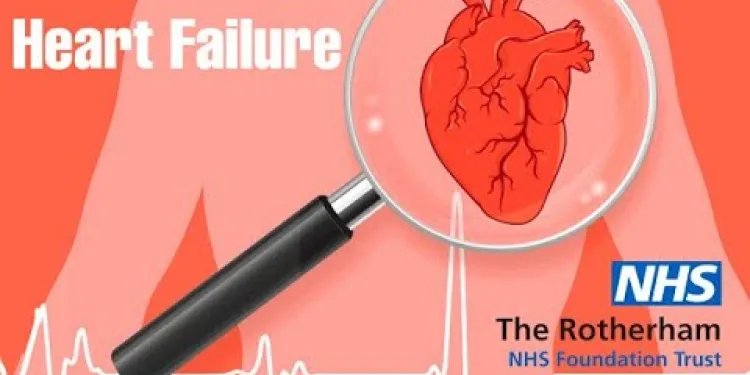
Heart Failure : What is heart failure?
Relevance: 100%
-
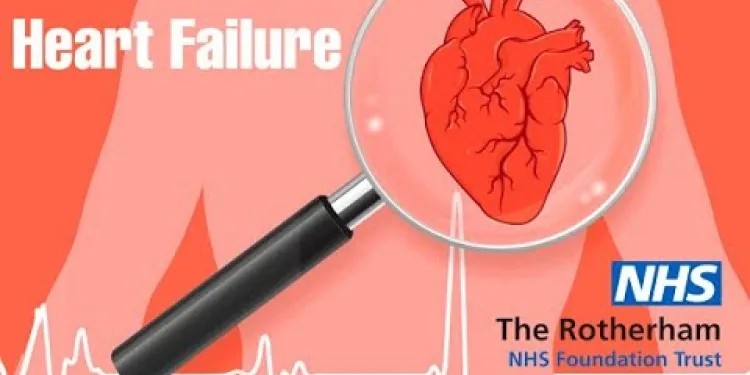
Heart Failure : Symptoms of heart failure
Relevance: 100%
-
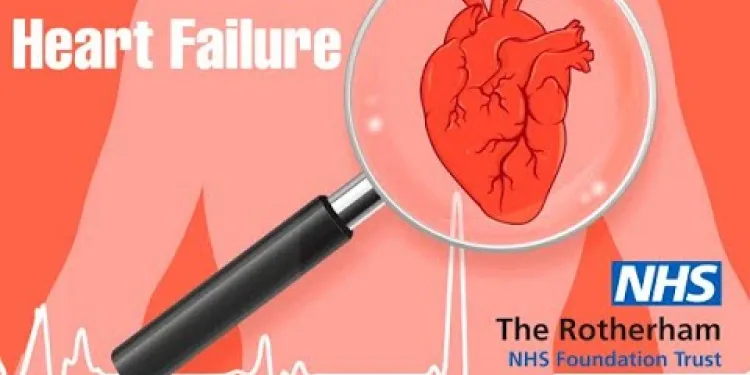
Heart Failure : Heart failure that cannot pump
Relevance: 97%
-

How is heart failure diagnosed?
Relevance: 95%
-

Heart Failure : The normal heart
Relevance: 94%
-

Heart failure introduction
Relevance: 93%
-
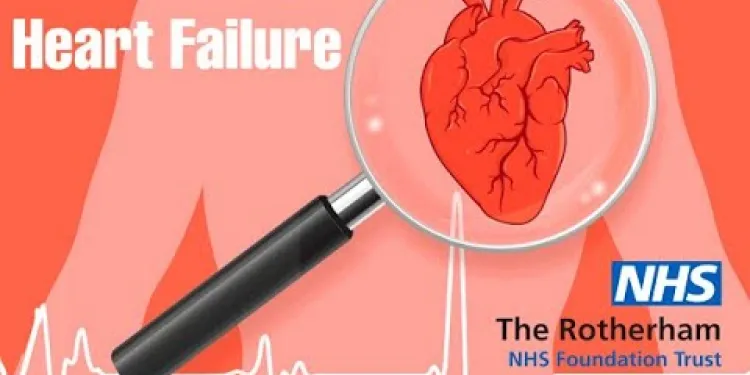
Heart Failure : When the heart becomes stiff?
Relevance: 90%
-

Are there different types of heart failure?
Relevance: 89%
-

What causes heart failure?
Relevance: 84%
-
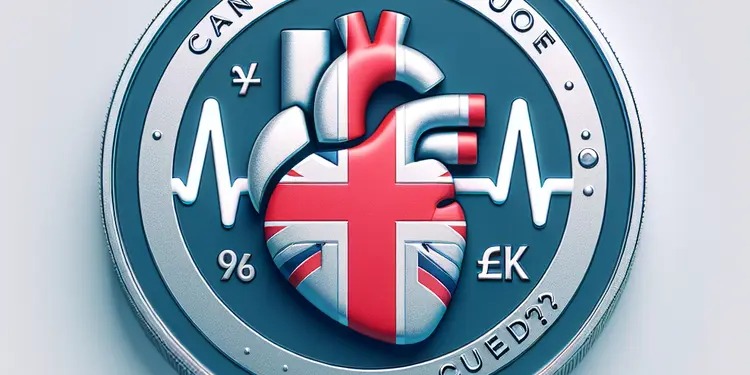
Can heart failure be cured?
Relevance: 84%
-

Can heart failure be prevented?
Relevance: 84%
-

What is the prognosis for someone with heart failure?
Relevance: 81%
-

Is Baxdrostat used in treating heart failure?
Relevance: 79%
-
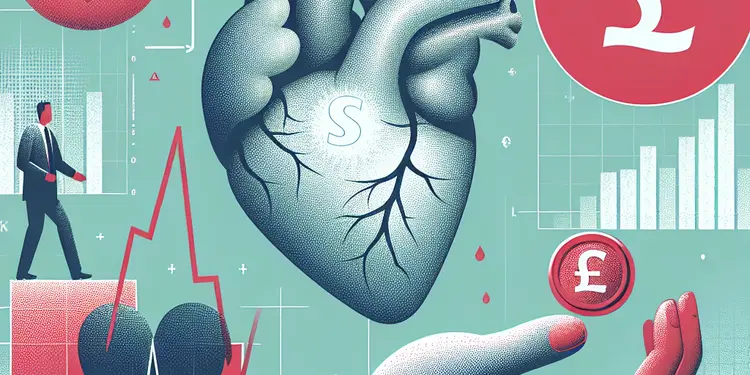
What should I do if I experience symptoms of heart failure?
Relevance: 77%
-
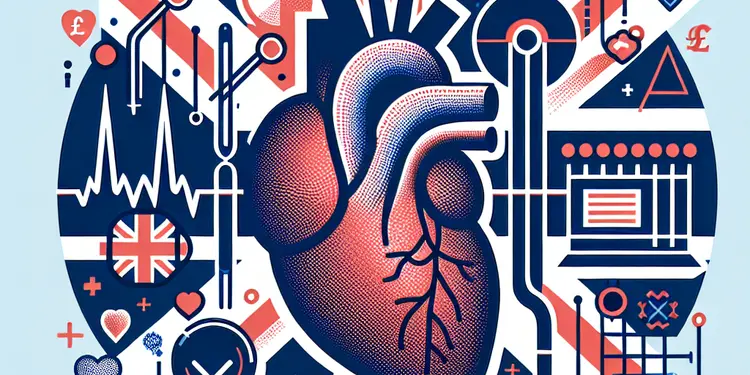
Can heart failure affect other organs?
Relevance: 77%
-

What is the role of diet in managing heart failure?
Relevance: 77%
-
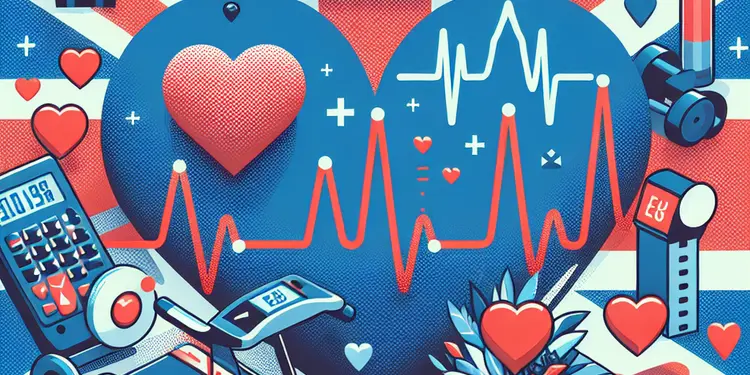
How does exercise impact heart failure?
Relevance: 77%
-
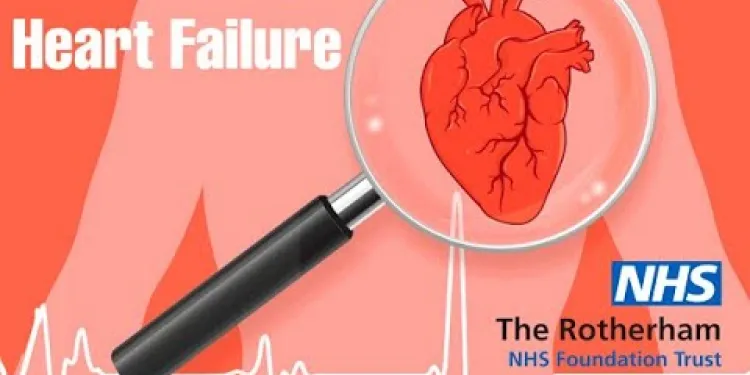
Heart Failure : Treatment and monitoring of fluid retention
Relevance: 76%
-

What medications are commonly prescribed for heart failure?
Relevance: 76%
-
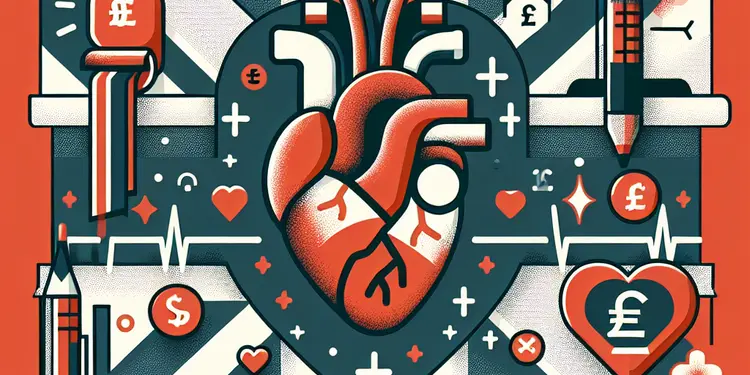
What is heart failure?
Relevance: 70%
-

What are the common symptoms of heart failure?
Relevance: 62%
-

How often should someone with heart failure see their doctor?
Relevance: 55%
-

What lifestyle changes can help manage heart failure?
Relevance: 51%
-

Is my abnormal heart rhythm dangerous?
Relevance: 49%
-
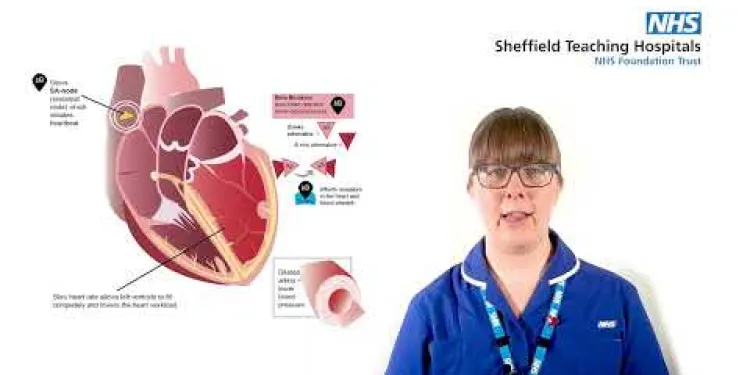
Medicines of the heart
Relevance: 46%
-

Is my abnormal heart rhythm dangerous?
Relevance: 45%
-

BSL - Diagnosis of panic disorder
Relevance: 44%
-

How do beta-blockers contribute to heart attack prevention?
Relevance: 43%
-
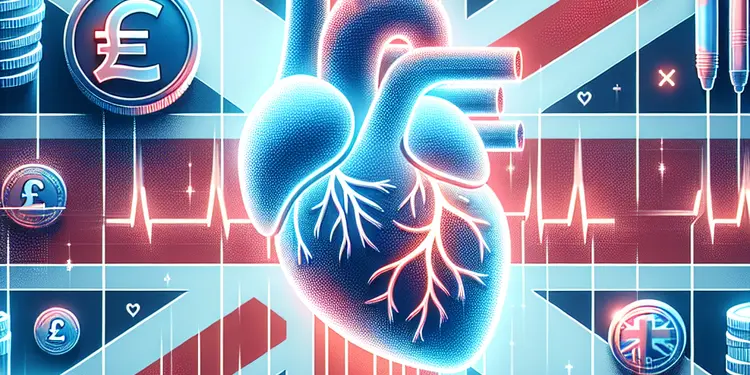
What are the long-term effects of a heart attack?
Relevance: 42%
-

Does coffee consumption have any long-term heart health effects?
Relevance: 41%
-

Heart stents
Relevance: 41%
-
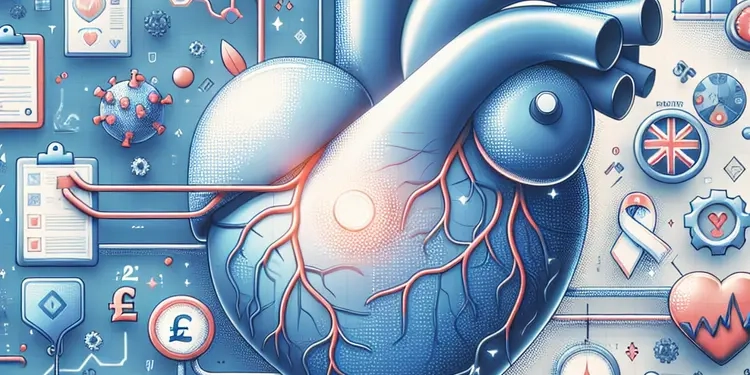
What is heart valve disease?
Relevance: 40%
-

Prostate cancer diagnosis and tests
Relevance: 39%
-

What are the risk factors for a heart attack?
Relevance: 39%
-

Is it possible to have a heart attack without chest pain?
Relevance: 39%
-

Can heart attack symptoms vary by age?
Relevance: 38%
-

Head and Neck Cancer Diagnosis
Relevance: 38%
-

Are heart attack symptoms different for people with diabetes?
Relevance: 37%
-

Is it possible to prevent a heart attack?
Relevance: 37%
-

Heart Attack Stories | NHS
Relevance: 37%
Introduction to Heart Failure Diagnosis
Heart failure, a condition where the heart cannot pump blood effectively, affects many people in the UK. Accurate diagnosis is crucial for effective management and treatment. Various diagnostic methods are employed by healthcare professionals to identify heart failure, using a combination of medical history assessment, physical examinations, and advanced diagnostic tests.
Medical History and Symptom Assessment
The first step in diagnosing heart failure involves a detailed assessment of the patient's medical history and symptoms. Doctors will inquire about the presence of symptoms such as shortness of breath, fatigue, swelling in the legs, and rapid heartbeat. They will also consider risk factors like hypertension, diabetes, coronary artery disease, and a history of heart attacks or other cardiovascular issues. Gathering this information helps determine the likelihood of heart failure and guides further testing.
Physical Examination
During a physical examination, healthcare providers check for signs indicative of heart failure. They will listen for abnormal heart sounds using a stethoscope, check for fluid retention by examining the ankles and abdomen for swelling, and assess the jugular veins in the neck for signs of increased pressure. These physical signs can provide valuable clues about heart function and any potential failures.
Diagnostic Tests
Several diagnostic tests are essential in confirming heart failure. One of the primary tests is an echocardiogram, which uses ultrasound waves to create detailed images of the heart, allowing doctors to assess its structure and function. This test helps determine the heart's ejection fraction, a key measure of how well the heart is pumping.
Other common diagnostic tests include blood tests such as the B-type natriuretic peptide (BNP) test, which measures levels of a hormone associated with heart failure. High levels of BNP in the blood may indicate heart failure. Electrocardiograms (ECGs) are also conducted to detect abnormal heart rhythms or damage.
In some cases, additional imaging tests like chest X-rays or MRI scans of the heart are used to provide further insights into the size and condition of the heart and lungs. Stress tests might also be conducted to observe how the heart performs under physical exertion.
Conclusion
Diagnosing heart failure is a multifaceted process that requires a comprehensive evaluation of the patient's symptoms, physical condition, and results from various diagnostic tests. Early detection and accurate diagnosis are important as they allow for more effective management of heart failure, improving outcomes and quality of life for patients. Individuals experiencing symptoms or who have risk factors for heart failure should seek medical attention promptly for assessment and diagnosis.
Introduction to Heart Failure Diagnosis
Heart failure happens when the heart cannot pump blood well. This problem affects many people in the UK. Finding out if someone has heart failure is very important for helping them get better treatment. Doctors use different ways to find heart failure. They look at your medical history, check your body, and run special tests.
Medical History and Symptom Assessment
To find heart failure, doctors first learn about your medical history and symptoms. They ask if you feel short of breath, very tired, notice swelling in your legs, or if your heart beats very fast. They also check if you have high blood pressure, diabetes, or other heart problems. Knowing this helps doctors decide if you need more tests.
Physical Examination
In a physical check-up, doctors look for signs of heart failure. They listen to your heart with a stethoscope. They check your ankles and belly for swelling, which shows fluid build-up. They also look at veins in your neck. These signs help doctors understand how your heart is working.
Diagnostic Tests
Doctors use different tests to find heart failure. An echocardiogram is a main test. It uses sound waves to make pictures of the heart, showing how it works. This test checks how much blood the heart pumps, which is important to know.
Blood tests like BNP tests check for a hormone linked to heart failure. If BNP levels are high, it might mean heart failure. Electrocardiograms (ECGs) check your heart's beats and can find any problems.
Some people might need more tests like X-rays or MRI scans. These tests give more details about the heart and lungs. Stress tests show how the heart works when you exercise.
Conclusion
Finding out about heart failure needs many steps. Doctors check your symptoms, do physical exams, and look at test results. It is important to find heart failure early to manage it well and help patients feel better. If you have symptoms or risk factors, see a doctor quickly for a check-up.
Frequently Asked Questions
What is heart failure?
Heart failure, also known as congestive heart failure, is a condition where the heart is unable to pump sufficient blood to meet the body's needs.
How is heart failure diagnosed?
Heart failure is diagnosed through a combination of medical history, physical exams, and tests such as blood tests, chest X-rays, electrocardiograms, echocardiograms, and sometimes stress tests or cardiac MRI.
What are the symptoms of heart failure?
Symptoms of heart failure include shortness of breath, fatigue, swollen legs, ankles, or feet, rapid or irregular heartbeat, reduced ability to exercise, and persistent cough or wheezing.
Why is an echocardiogram important in diagnosing heart failure?
An echocardiogram uses sound waves to create detailed images of the heart, helping doctors to assess the heart's function and structure, which is crucial for diagnosing heart failure.
What role does a chest X-ray play in diagnosing heart failure?
A chest X-ray can show the size and shape of the heart and detect fluid in the lungs, which are important indicators of heart failure.
How does an electrocardiogram (ECG) help diagnose heart failure?
An ECG records the electrical activity of the heart and can reveal abnormal heart rhythms, previous heart attacks, and some forms of heart disease that can cause heart failure.
What blood tests are done to diagnose heart failure?
Blood tests for heart failure may include those that measure kidney function, liver function, and levels of various substances in the blood such as B-type natriuretic peptide (BNP), which is elevated in heart failure.
Can a stress test diagnose heart failure?
A stress test, which involves exercising on a treadmill or a drug that mimics exercise, can help assess how well the heart functions under stress and may assist in diagnosing heart failure.
What is BNP and how is it related to heart failure diagnosis?
Brain Natriuretic Peptide (BNP) is a hormone produced by the heart. Elevated BNP levels in the blood are often used as a marker for diagnosing heart failure.
When might a cardiac MRI be used in diagnosing heart failure?
Cardiac MRI might be used when detailed images of the heart are necessary to assess damage, evaluate cardiac function, or when other tests are inconclusive.
Can heart failure be detected through physical examination alone?
While a physical exam can reveal signs suggestive of heart failure, such as fluid retention and irregular heartbeat, additional tests are needed for a definitive diagnosis.
What lifestyle information will doctors consider in diagnosing heart failure?
Doctors consider factors like diet, exercise habits, smoking, alcohol use, and stress levels when diagnosing heart failure, as these can affect heart health.
Can heart failure be diagnosed through a single test?
No, diagnosing heart failure typically requires a combination of assessments, including medical history, physical exams, and multiple diagnostic tests.
What is the importance of medical history in diagnosing heart failure?
Medical history provides context such as previous heart disease, hypertension, diabetes, or family history of heart issues, all of which are important for diagnosing heart failure.
How do doctors monitor heart failure after diagnosis?
Patients diagnosed with heart failure are monitored through regular check-ups and possible repetition of diagnostic tests to assess heart function and manage treatment.
What is the role of a cardiologist in diagnosing heart failure?
A cardiologist is a specialist in heart conditions who can interpret tests, diagnose heart failure, and recommend treatment.
Can medication history impact heart failure diagnosis?
Yes, certain medications can affect heart function and symptoms, so a complete medication history is essential in diagnosing heart failure.
How long can the process of diagnosing heart failure take?
The time can vary depending on the complexity of the case, but generally it involves initial appointments, testing, and follow-up visits over several days to weeks.
Are there risk factors that increase the likelihood of developing heart failure?
Yes, risk factors include coronary artery disease, high blood pressure, diabetes, obesity, tobacco use, and a family history of heart disease.
Is heart failure diagnosis the same for everyone?
No, the process may vary based on individual symptoms, risk factors, and the availability of diagnostic tests.
What is heart failure?
Heart failure means the heart is not working as well as it should. The heart is tired and cannot pump blood around the body properly.
People with heart failure might feel very tired. They might find it hard to do normal things, like walking or playing.
If you want to learn more, you can ask a doctor or a nurse. Pictures and videos about the heart can also help you understand better.
Heart failure is a health problem. It is also called congestive heart failure. It happens when the heart cannot pump enough blood for the body.
How do doctors know if someone has heart failure?
Doctors can do some tests to see if your heart is not working well.
Here are some tests they might do:
- Talk and Listen: The doctor will ask how you feel and listen to your heart.
- Blood Test: They might take some blood to check for signs.
- Heart Picture: A special machine makes a picture of your heart.
- Heart Recording: They can track your heartbeats with wires.
If you have trouble reading, ask someone to read for you. You can also use a computer or tablet to read aloud.
Doctors find out if someone has heart failure by doing different things. They will ask about how you feel and look at your body. They might also do tests. These tests can be blood tests, where they check your blood. They might take a picture of your chest, called a chest X-ray. They could check your heart's rhythm with an electrocardiogram (ECG). They might also look at your heart by using an echocardiogram. Sometimes, they might do other tests, like a stress test or a special heart scan called a cardiac MRI.
What happens if your heart is sick?
When your heart is not working well, you might have these signs:
- It can be hard to breathe.
- You might feel very tired.
- Your legs, ankles, or feet might get big and puffy.
- Your heart can beat very fast or in a strange way.
- It's hard to do your normal exercise.
- You might cough a lot or make a wheezing sound when you breathe.
If you notice these signs, tell an adult you trust or a doctor. They can help you. You can use pictures or videos to understand how the heart works better.
Why is an echocardiogram important for finding heart problems?
An echocardiogram is a special picture of the heart. It helps doctors see how the heart is working. This is important to check if the heart is healthy or if there are problems.
If someone has heart failure, an echocardiogram can show if the heart is not pumping well. This helps the doctor know what to do next to help the person feel better.
Here are some ways to make understanding easier:
- Ask the doctor to explain any big words.
- Use pictures or drawings to see what the heart looks like.
- Bring a friend or family member to help listen and remember what the doctor says.
An echocardiogram is a test. It uses sound waves to take pictures of your heart. These pictures help doctors see how well your heart is working. It is very important in finding out if someone has heart failure.
How does a chest X-ray help find heart problems?
A chest X-ray takes a picture of the inside of your chest. This picture can show doctors if your heart is too big or if there is fluid in your lungs. Both can be signs that your heart is not working well. This helps doctors figure out if you have heart problems.
For extra help, you can:
- Ask a friend or family member to explain the picture to you.
- Use simple drawings or models to see what a heart and lungs look like.
- Watch a video about how chest X-rays work.
A chest X-ray is a picture that shows the heart and lungs. It can tell if the heart is too big or if there is water in the lungs. This helps doctors know if someone has heart problems.
How does an ECG test check for heart problems?
An ECG is a test that looks at how the heart works.
This test shows if the heart is beating normally or if there is a problem.
If the heart is not working right, it might mean heart trouble.
Doctors use the ECG test to find out if someone has heart failure.
Tools like picture diagrams or apps can help understand how the heart works.
An ECG is a test that checks how your heart is working. It looks at the heart's electricity. It can show if your heart beats funny, if you had a heart attack before, or if you have heart problems that make the heart not work well.
Tools like colored markers can help you highlight important words. Use apps that read text out loud if you find it hard to read. Take breaks and read slowly to understand better.
What blood tests check for heart failure?
Doctors can do blood tests to check for heart problems. These tests can check how your kidneys and liver are working. They can also look at different things in your blood. One important thing they check is called BNP. When your BNP is high, it can mean there is a heart problem.
Can a stress test find heart problems?
A stress test checks how well your heart works when you exercise. You might walk on a treadmill or take a medicine that feels like exercise. This helps doctors see if your heart is healthy. It's useful for finding out if someone has heart problems.
What is BNP and how does it help doctors find out about heart problems?
Brain Natriuretic Peptide (BNP) is a chemical made by the heart. High BNP levels in the blood can show that the heart is not working well.
When do doctors use a heart MRI to find out about heart problems?
Doctors might use a special picture of your heart called an MRI if they need to check how your heart is working. The MRI helps them see if there is anything wrong with your heart that makes it hard for it to pump blood.
You can use tools like picture cards or ask someone to explain things with simple words to help understand more about it. Watching videos about heart MRIs might also be helpful.
Doctors use a special picture of the heart called a Cardiac MRI. They use it to look at the heart very closely. This helps them see if the heart is hurt or working well. Doctors use this test when other tests do not give clear answers.
Can a doctor find heart failure by just looking at and touching a patient?
Some tips to understand this question better:
- Heart failure is when the heart is not working properly.
- Doctors use tests, like listening to the heart and checking for swelling, to check for heart failure.
- Sometimes, the doctor needs special tools, like an X-ray, to know for sure.
A doctor can check your body to see if you might have heart problems. They look for signs like extra water in your body or a heartbeat that is not steady. But, to be sure, you need more tests.
It might help to use tools like picture cards or simple apps to understand your doctor's visit better. It's a good idea to ask someone to go with you to the doctor to help remember what is said.
What things about how someone lives do doctors look at to know if they have heart problems?
Doctors look at things like what you eat, how much you move around, if you smoke, drink alcohol, and how stressed you feel. These things can change how healthy your heart is.
Can doctors find out if you have heart failure with just one test?
No, finding out if someone has heart failure usually takes a few steps. Doctors will look at things like your health story, check your body with a physical exam, and do some tests.
Why is it important for doctors to know your medical history to find heart problems?
Your medical history is a record of your past health. It helps doctors understand if you might have heart problems.
Doctors ask about:
- Any health problems you had before.
- If anyone in your family had heart problems.
- Medications you take.
This information helps doctors figure out what's wrong and how to help you.
Support tools:
- Bring a list of your medications to the doctor.
- Write down any health problems you had before your appointment.
- Ask a family member to help you remember important health details.
Knowing your past health is important. If you had heart problems before, high blood pressure, diabetes, or if your family has heart problems, it helps the doctor find out if you have heart failure.
How do doctors check on heart problems after they find them?
Doctors have special ways to check your heart. They want to make sure it is working well. If your heart has problems, they might:
- Ask you how you feel.
- Listen to your heart with a stethoscope.
- Take some pictures of your heart using special machines.
Doctors might also want you to help by:
- Writing down how you feel each day.
- Taking your medicines on time.
If you need help, you can:
- Ask a family member or friend to go with you to the doctor.
- Write down any questions you have before your visit.
If someone has heart problems, doctors will check on them often. This helps the doctors see how well the heart is working. They might do tests again and again to make sure the treatment is helping.
What does a heart doctor do to find out if someone has heart failure?
A heart doctor, called a cardiologist, checks the heart to see if it is weak or not working properly. They use special tools and tests to do this.
If you need help reading, you can ask someone you trust to read with you or explain words you don’t know.
A heart doctor is someone who helps with problems of the heart. They can look at heart tests, find out if your heart is not working well, and tell you what medicine or treatment you might need.
Can past medicines affect finding heart problems?
Easy Words: Past medicines are the medicines you took before. Heart problems can make it hard for your heart to work.
Simple Question: Can taking medicine before change how doctors see heart problems?
Helpful Tip: Use pictures to show what different medicines and heart problems are.
Supportive Tools: You can use apps that read text out loud to help understand better.
Yes, some medicines can change how the heart works. They can also change heart problems. So, it is very important to know all the medicines a person takes to find out about heart failure.
How long does it take to find out if someone has heart failure?
How long it takes can be different for each person. It depends on how tricky the case is. Usually, there are first meetings, tests, and more visits. This can last a few days or even weeks.
What things can make it more likely to get heart failure?
Here are some things that might make heart failure more likely:
- Having high blood pressure
- Having a heart attack before
- Having diabetes
- Being overweight
- Smoking
- Not exercising
You can ask a doctor for more help or use simple tools, like picture cards, to understand better.
Yes, there are things that can make heart problems more likely. These include having heart disease, high blood pressure, diabetes, being very overweight, smoking, and if people in your family have had heart problems.
If it's hard to understand these, using picture books or asking someone to explain can help.
Do doctors check for heart failure in the same way for everyone?
No, it can be different for each person. It depends on what symptoms they have, their health risks, and which tests the doctor can use.
Useful Links
This website offers general information and is not a substitute for professional advice.
Always seek guidance from qualified professionals.
If you have any medical concerns or need urgent help, contact a healthcare professional or emergency services immediately.
Some of this content was generated with AI assistance. We’ve done our best to keep it accurate, helpful, and human-friendly.
- Ergsy carfully checks the information in the videos we provide here.
- Videos shown by Youtube after a video has completed, have NOT been reviewed by ERGSY.
- To view, click the arrow in centre of video.
- Most of the videos you find here will have subtitles and/or closed captions available.
- You may need to turn these on, and choose your preferred language.
- Go to the video you'd like to watch.
- If closed captions (CC) are available, settings will be visible on the bottom right of the video player.
- To turn on Captions, click settings .
- To turn off Captions, click settings again.
More Items From Ergsy search
-

Heart Failure : What is heart failure?
Relevance: 100%
-

Heart Failure : Symptoms of heart failure
Relevance: 100%
-

Heart Failure : Heart failure that cannot pump
Relevance: 97%
-

How is heart failure diagnosed?
Relevance: 95%
-

Heart Failure : The normal heart
Relevance: 94%
-

Heart failure introduction
Relevance: 93%
-

Heart Failure : When the heart becomes stiff?
Relevance: 90%
-

Are there different types of heart failure?
Relevance: 89%
-

What causes heart failure?
Relevance: 84%
-

Can heart failure be cured?
Relevance: 84%
-

Can heart failure be prevented?
Relevance: 84%
-

What is the prognosis for someone with heart failure?
Relevance: 81%
-

Is Baxdrostat used in treating heart failure?
Relevance: 79%
-

What should I do if I experience symptoms of heart failure?
Relevance: 77%
-

Can heart failure affect other organs?
Relevance: 77%
-

What is the role of diet in managing heart failure?
Relevance: 77%
-

How does exercise impact heart failure?
Relevance: 77%
-

Heart Failure : Treatment and monitoring of fluid retention
Relevance: 76%
-

What medications are commonly prescribed for heart failure?
Relevance: 76%
-

What is heart failure?
Relevance: 70%
-

What are the common symptoms of heart failure?
Relevance: 62%
-

How often should someone with heart failure see their doctor?
Relevance: 55%
-

What lifestyle changes can help manage heart failure?
Relevance: 51%
-

Is my abnormal heart rhythm dangerous?
Relevance: 49%
-

Medicines of the heart
Relevance: 46%
-

Is my abnormal heart rhythm dangerous?
Relevance: 45%
-

BSL - Diagnosis of panic disorder
Relevance: 44%
-

How do beta-blockers contribute to heart attack prevention?
Relevance: 43%
-

What are the long-term effects of a heart attack?
Relevance: 42%
-

Does coffee consumption have any long-term heart health effects?
Relevance: 41%
-

Heart stents
Relevance: 41%
-

What is heart valve disease?
Relevance: 40%
-

Prostate cancer diagnosis and tests
Relevance: 39%
-

What are the risk factors for a heart attack?
Relevance: 39%
-

Is it possible to have a heart attack without chest pain?
Relevance: 39%
-

Can heart attack symptoms vary by age?
Relevance: 38%
-

Head and Neck Cancer Diagnosis
Relevance: 38%
-

Are heart attack symptoms different for people with diabetes?
Relevance: 37%
-

Is it possible to prevent a heart attack?
Relevance: 37%
-

Heart Attack Stories | NHS
Relevance: 37%


